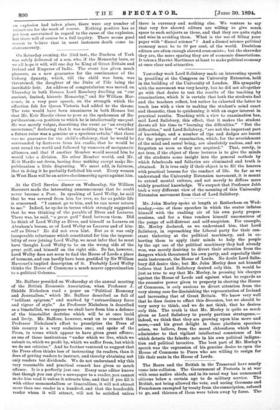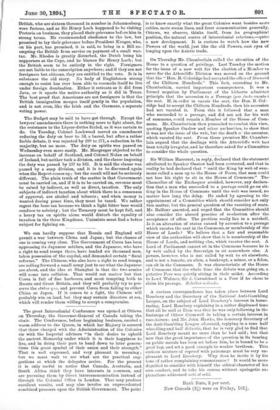The Boers and the British in the Transvaal have nearly
come into collision. The Government of Pretoria is at war with some native chiefs, and in its usual way has summoned citizens below a certain age to do military service. The British, not being allowed the vote, and seeing Germans and Frenchmen exempted by treaty from the conscription, refused to go, and thirteen of them were taken away by force. The
British, who are sixteen thousand in number in Johannesburg, were furious, and as Sir Henry Loch happened to be visiting Pretoria on business, they placed their grievance before him in -strong terms. He recommended obedience to the law, but promised to lay their grievance before President Kruger, who, -on his part, has promised, it is said, to bring in a Bill ex- empting the British from service on payment of a small war- tax. Mr. Rhodes is greatly disturbed, the Dutch being his supporters at the Cape, and he blames Sir Henry Loch; but the British seem to be entirely in the. right. Foreigners are not liable to the conscription anywhere; and if they are not foreigners but citizens, they are entitled to the vote. It is in substance the old story. No body of Englishmen strong enough to resist has ever been able to reconcile itself to live -under foreign domination. Either it retreats as it did from Java, or it upsets the native authority as it did in Texas. The best proof that Americans are not foreigners is that the British immigration merges itself gently in the population, and is not even, like the Irish and the Germans, a separate voting power.



















































 Previous page
Previous page